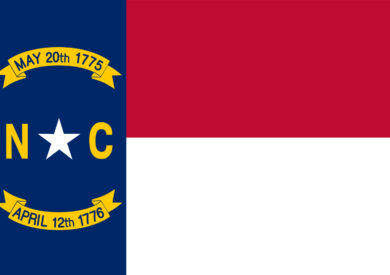
 Popular Cities For Lending in North Carolina
Popular Cities For Lending in North Carolina
In the North Carolina real estate market, grabbing properties before your competition is essential for making the best deals. Although real estate investors sometimes go the traditional route and seek bank loans, the process is anything but speedy.
When time is of the essence, waiting for the lengthy process of getting approval is not an option for most investors. North Carolina hard money lenders specialize in providing hard money loans which provide quick funds to investors. These loans are for a non owner occupied property or in some cases for business purpose loans.
North Carolina Hard Money Lender FAQ’S
Below are some of the most frequently asked questions we get regarding hard money loans and lenders in North Carolina.
What Do North Carolina Hard Money Lenders Specialize in?
North Carolina hard money lenders specialize in providing short-term, creative financing for real estate investors. If you seek a conventional lender to purchase an investment property, your loan request will be based on the property’s value and your assets. Your credit score, job, and finances will be scrutinized intensely. Hard money lenders base their final loan decisions on the after-repair value. The ARV represents the potential value of a property after all repairs have been accomplished.
What are the Benefits of North Carolina Hard Money Loans?
North Carolina hard money loans offer advantages that traditional banks cannot. Lenders like Acamnet Financial offer a higher level of flexibility than banks. When qualifying for this type of loan, lenders do not delve too deeply into the finances of real estate investors. In most cases, simply present the property and your plans, which saves you the hassle of gathering countless financial documents.
Do North Carolina Hard Money Lenders Look at my Credit Score?
One of the greatest benefits of working with North Carolina hard money lenders is the lack of credit score requirements. One of the first things a bank does is check your credit score. You can get approved for a hard money loan in North Carolina even if you have bad credit or poor credit, bankruptcies, and foreclosures in the past. North Carolina Hard money lenders primarily care about the property you are purchasing.
What is the Interest Rate & Points for Hard Money Loans in North Carolina?
Interest rates for hard money loans in North Carolina are typically higher than traditional bank loans (conventional loans) because of the greater risk lenders must take on when approving loans. When searching for a hard money lender near me in North Carolina, you will find average interest rate is between 8%-15%. You should also be aware that lenders sometimes charge points that are meant to offset their administrative costs. Each point represents 1% of the total loan amount. The average points lenders charge is between 1 to 3. Some lenders may charge up to 10 points. These points are due upfront or at closing, depending on the lender.
What Should I Look for in a North Carolina Hard Money Lender?
There are many benefits to working with a North Carolina hard money lender. You just need to make sure you are working with the right lender. You can rely on Acamnet Financial Group when you need us most. We offer reliability, consistency, experience, and support. As a real estate investor, you know the importance of grabbing the best property deals when they become available.
How can Hard Money Lenders in North Carolina Help Me?
Whether you are new to real estate and real estate projects or an old pro, you know having the capital to purchase real estate is essential. Without funds, you will miss out on real estate transactions. When you partner with hard money lenders in North Carolina, you will quickly get the money you need without jumping through the hoops of traditional bank lenders.
How do I get a Hard Money Loan in North Carolina?
When you want a hard money loan in North Carolina, begin by preparing the property information. Location, size, purchase price, after repair value, repair costs, etc. In most cases, the financing will be based on these numbers. Then, apply for a hard money loan in North Carolina using this information and supply some financial information. Then, an appraisal will be ordered to assess the loan-to-value ratio, which will influence the loan amount.
How do I Refinance a North Carolina Hard Money Loan?
Refinance a North Carolina hard money loan will involve moving from a high interest, short term loan to a longer term, usually lower interest rate loan. Typically a conventional type of loan. When refinancing a North Carolina hard money loan you will find it will have a more stringent set of guidelines. You will need to have sufficient credit and income qualifications. As the lending landscaping and regulations constantly change, you want to consult a knowledgeable conventional loan expert.

Current Real Estate Trends In North Carolina (2024)
The real estate sector in North Carolina has undergone drastic changes in recent years. This article aims to provide an unbiased and data-driven analysis of the current trends in the state’s real estate market.
By examining market overviews, updates, forecasts, and factors influencing the market, readers will gain a comprehensive understanding of the present landscape.
The analysis is based on a variety of reliable sources, including industry reports, government data, and expert opinions.
This article seeks to educate readers about the current state of the real estate market in North Carolina and its potential effects on buyers, sellers, and investors.
By providing an impartial and factual assessment of the data, readers will be able to make informed decisions and navigate the ever-changing real estate market in the state.
Market Overview
The real estate market in North Carolina is in a great state, with a strong upward trend in demand for both residential and commercial properties. Factors such as a solid economy, low interest rates, and an expanding population have all had their part in driving the market. Cities like Charlotte and Raleigh have seen tremendous development and investment, making them desirable destinations for buyers and investors.
Urban areas have seen the greatest progress, with new constructions and investments in infrastructure, while suburban areas have seen a more modest growth. The rental market is also strong, with increasing demand for both single-family and multi-family dwellings.
In terms of pricing, North Carolina is slightly more affordable than the national average, making it an attractive option for potential buyers.
Overall, the real estate market in North Carolina is in a healthy state, with promising prospects for the future. With continued growth in population and economic indicators, this market is likely to continue its upward trend in the foreseeable future.
Updates and Forecasts
The real estate market in the southeastern state has seen considerable developments in recent times. Home prices have been on a steady climb over the past twelve months, a sign of strong demand for housing. Meanwhile, the number of available homes has decreased, making competition among buyers more intense.
Experts anticipate this trend to stay in place due to factors such as population growth and low mortgage rates.
Factors Affecting the Market
Population growth and mortgage rates have had profound impacts on the real estate market in North Carolina. This has led to an increase in housing demand and a competitive market with rising prices and limited inventory.
The state has experienced a considerable population increase, boosting housing needs. Plus, mortgage rates have made buying a home more accessible, thus stimulating demand further. These two factors have had a major effect on current market conditions.
Sources
https://www.noradarealestate.com/blog/north-carolina-housing-market/
https://www.bankrate.com/real-estate/housing-market/north-carolina/#market-overview
https://www.houzeo.com/blog/north-carolina-real-estate-market/

All About North Carolina
North Carolina, the 28th largest state in the United States, is characterized by its diverse geography and rich history. Situated between Virginia, the Atlantic Ocean, Georgia, South Carolina, and Tennessee, it is home to over 10 million people.
The state’s capital is Raleigh, while its largest city is Charlotte, serving as the center of the most populous metropolitan area.
With a significant Native American history, North Carolina was inhabited by tribes such as the Cherokee and Mississippian cultures for thousands of years. However, European contact ushered in a period of destabilization for Native American societies.
The state played a pivotal role in early European settlement, with Sir Walter Raleigh and Spanish explorers attempting to establish colonies. North Carolina became a royal colony in 1729 and later ratified the US Constitution in 1789.
The state has a renowned aviation history, including the Wright brothers’ first controlled flight in Kitty Hawk. Additionally, North Carolina boasts cultural landmarks, esteemed education and research institutions, natural beauty, a diverse economy, and a history intertwined with slave labor and plantation systems.
Overall, North Carolina offers a unique blend of historical significance, natural splendor, and economic opportunities.
Geography
North Carolina’s diverse geography, ranging from the Appalachian Mountains to the coastal plains, offers a breathtaking natural beauty that captivates and inspires visitors.
The western part of the state is dominated by the majestic Appalachian Mountains, which provide a stunning backdrop for outdoor activities such as hiking and skiing.
In contrast, the eastern part of the state features vast coastal plains that stretch along the Atlantic Ocean, offering miles of pristine beaches and picturesque coastal landscapes.
Additionally, North Carolina is home to the Outer Banks, a chain of barrier islands known for their unique ecosystems and historic lighthouses.
The state’s varied geography provides abundant opportunities for outdoor enthusiasts to explore and appreciate its natural wonders.
Transitioning into the subsequent section about significant cities, North Carolina’s geography also encompasses vibrant urban centers that showcase the state’s rich cultural heritage and economic significance.
Major Cities
Raleigh, the state’s capital, is known for its vibrant cityscape and serves as a hub for government, education, and technology. The city is home to numerous government institutions, including the North Carolina State Capitol and the Governor’s Mansion.
Raleigh is also known for its renowned research institutions, such as North Carolina State University and Research Triangle Park, which attract professionals and innovators from various fields.
Additionally, the city offers a thriving arts and culture scene, with museums, galleries, and theaters showcasing local talent. With its diverse economy and robust education system, Raleigh continues to attract residents and businesses alike.
Now, let’s delve into the rich Native American history of the region.
Native American History
The region now known as North Carolina has a rich and complex history of indigenous cultures and civilizations. For thousands of years, Native American tribes inhabited this area, with the Cherokee people believed to have migrated to the region.
The Mississippian culture built elaborate cities in the area, showcasing the advanced societal structures and architectural achievements of these early inhabitants. However, European contact led to the destabilization of Native American societies.
Historic tribes in the region include the Carolina Algonquian, Iroquoian, and Southeastern Siouan tribes.
This period of Native American history sets the stage for the subsequent colonial and revolutionary history of North Carolina, which will be explored in the next section.
Colonial and Revolutionary History
During the colonial and revolutionary periods, the region now known as North Carolina played a significant role in the fight for independence from Great Britain. The state’s history is marked by events such as the Halifax Resolves, which called for independence from British rule in 1776.
North Carolina also witnessed the Battle of Moore’s Creek Bridge in 1776, a pivotal victory for the American forces that helped secure the state’s support for the Revolutionary cause.
Additionally, the state was the site of several key battles during the American Revolution, including the Battle of Guilford Courthouse in 1781. These events highlight North Carolina’s active participation in the struggle for independence.
Transitioning to the subsequent section about aviation history, North Carolina’s historical significance extends beyond the Revolutionary period.
Aviation History
Aviation enthusiasts worldwide recognize the profound impact of an innovative achievement on the sandy dunes of Kitty Hawk, forever changing the course of human flight. On December 17, 1903, Orville and Wilbur Wright piloted the world’s first powered aircraft, marking a significant milestone in aviation history.
The flight lasted only 12 seconds and covered a distance of 120 feet, but it paved the way for future advancements in aviation technology. The Wright brothers’ successful flight in North Carolina showcased the feasibility of powered flight and inspired generations of aviators.
Today, North Carolina proudly uses the slogan ‘First in Flight’ on state license plates, honoring the pioneering spirit and ingenuity of the Wright brothers and their historic achievement at Kitty Hawk.


 Popular Cities For Lending in North Carolina
Popular Cities For Lending in North Carolina